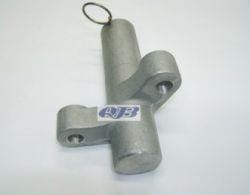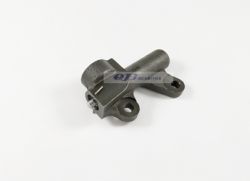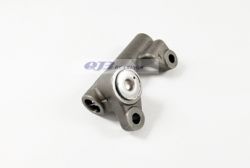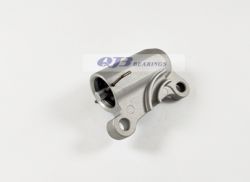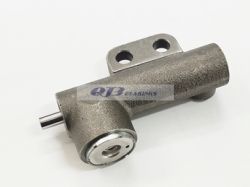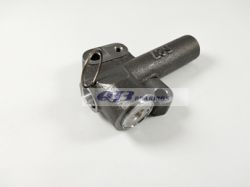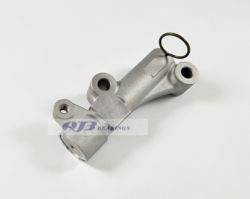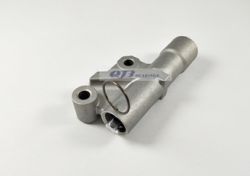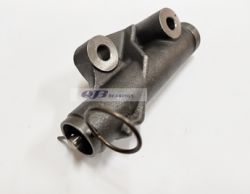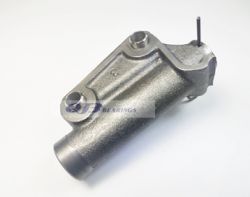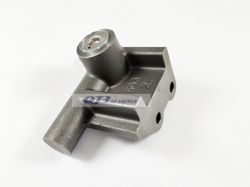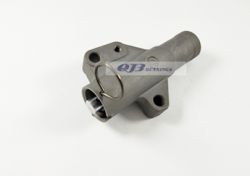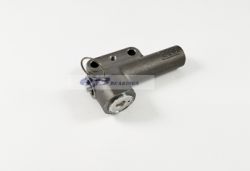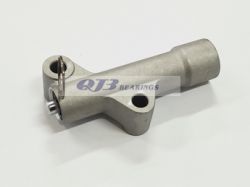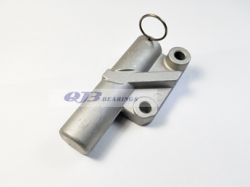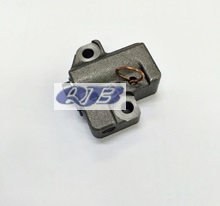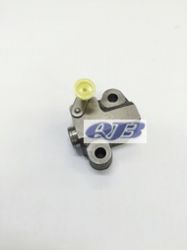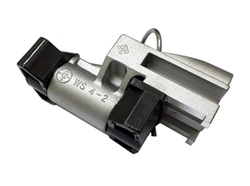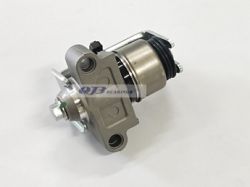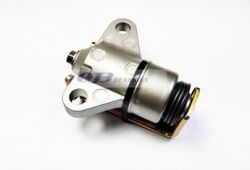A belt tensioner or/and idler pulley is a system that guides the serpentine belt and the timing belt on a car engine. The function of a pulley and a tensioner is to limit the belt slip. The belt tensioner can be mechanic (spring-loaded) or hydraulic.
A hydraulic tensioner is a better fit when a spring-loaded mechanical automatic tensioner cannot provide sufficient damping or tensioner movement. A hydraulic tensioner is practical for applications with high loads and/or angular vibrations. Compared with mechanical tensioners, hydraulic tensioners operate with a more extensive range of dynamic belt lengths. However, a hydraulic tensioner needs more engine space than a mechanic tensioner.
A hydraulic tensioner consists of a hydraulic actuator, a tensioner pulley bearing, and a lever. The actuator has a piston, which can move unidirectionally due to the oil flowing inside the actuator. Then the lever of the hydraulic tensioner system transmits the rod strokes to the tensioner pulley. In this case, the hydraulic actuator has three functions: controlling the dynamic belt forces, maintaining a constant belt tension, and compensating for length variation caused by thermal expansion.
The tensioner pulley bearing can wear, and the actuator will degrade over time. These issues can lead to a loss in timing belt tension and a loss of engine performance. Besides, oil leaks in the actuator seal can happen and cause incorrect damping of the actuator and accelerated wear on the tensioner system. These problems can eventually cause component failure or damage to the engine. Therefore, the hydraulic tensioner must be checked regularly. In case of loss in performance, it should be replaced by a qualified mechanic.
Queen Jen develops and manufactures premium quality aftermarket hydraulic tensioners for V6 and V8 car engines. Our hydraulic tensioners are durable, reliable, and fit for all major automobile brands and various models on the market, including sedans, vans, SUVs, and light trucks. Our hydraulic tensioners have the following advantages:
- Damp timing-belt vibration by automatically adjusting pressure.
- Automatic adjustment to regulate engine speed and vibration.
- Improve the durability of the timing belt and pulleys.
To find the right hydraulic tensioner, please visit Application.

.jpg)
